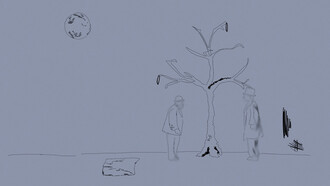It’s not unusual to become suspicious of a film when it gets nominated for Oscars. For years, the Academy Awards have been a place where “convenient” movies reigned while hidden gems remained undiscovered. After all, the term “Oscar bait” wasn’t invented for no reason. Anora is an exception to this rule.
Evolution of Russians in Hollywood
Since the dawn of cinematography, Russian films have been at the forefront of cinematic innovation. You won’t find a film school that doesn’t discuss the breakthroughs made by Kuleshov, Eisenstein, or Tarkovsky. However, with the arrival of the 21st century and the collapse of the Soviet Union, the significance of Russian cinema began to fade.
Like many other great film nations of the past, Russia had to reinvent itself due to its inability to keep up with the evolving world. No Oscar nominations were earned, almost no actors made it internationally, and the industry lacked fresh faces and relevance.
What Russians were left with was the role of a villain in the next John Wick movie or a second-tier mobster in some crime flick about certain parts of New York. But, as with everything in this world, this couldn’t last forever.
How Anora revives Russian culture “Hollywood style”
Help came from an unexpected place. Sean Baker, the creator of the critically acclaimed indie movie The Florida Project, discovered within himself the capacity to understand what a Russian person of the 21st century is, perhaps even better than a Russian could from the inside.
Anora is a comedic drama about a stripper who, by a stroke of luck, ends up marrying the son of a Russian billionaire without even trying particularly hard. Among other things, it’s a story of immaturity, power dynamics, cultural and linguistic clashes, and the struggles of powerless people trying to cling to whatever little they have.
But we are not here to discuss those aspects today.
Anora serves as a window through which the viewer can observe two distinct approaches to Russian culture.
The first exhibit presents the classic trope of a spoiled, young, worthless, lazy, drug-addicted, infantile, and pathetic rich Russian kid. He embodies what American audiences have been shown for years through various movies, news, and stereotypes—a myth of a wealthy, overpowered, and naïve Russian.
His world is all surface, no substance. He’s fun to party with, but when the party ends and you’re no longer entertaining, he’ll replace you. He has no depth, no detail, no real character—just a shell of the same figure we’ve seen repeatedly. Keanu Reeves has already killed him in his club, Viggo Mortensen has already stripped him of his power, and John Cusack has already left him to die in the apocalypse.
This character is portrayed as utterly unlikable. He and his parents are a disease in the American perception of Russians. They manipulate, betray, and feel no guilt.
The director brilliantly conveys this disgust with just a few masterful strokes. The quick introduction makes us initially sympathize with the brat, the prolonged and painful journey makes us feel annoyed by him, and the rapid, relentless conclusion convinces us to despise him and everything he represents. Within two hours and twenty minutes, the viewer’s jury has accused, judged, and convicted the character.
And then comes the savior of the Russian soul.
Yura Borisov: black sweatpants, black jacket, shaved head. He looks like a menace, behaves like a menace, and is perceived by Anora as a menace. But he’s as far from being a threat as humanly possible. Upon closer inspection, he’s the only positive character in the movie. Humble, strong, just, and silent. His background is clean, and his intentions are pure. He’s just a guy living with his grandmother, working on his birthday, and trying to help someone who has been wronged.
He is the human embodiment of what Sean Baker found in Russian people, something they may not even recognize in themselves. Russians are not loud; they are humble. They are not harmful; they are helpful. They are not rapists; they are simply trying to save you from yourself.
Baker creates sympathy through minute details, subtle gestures, and telling body language. Yura Borisov takes that sympathy and magnifies it a hundredfold, delivering one of the most captivating performances on the big screen in recent years. He steals the show from the main leads, giving the audience everything they ever wanted with just a couple of phrases and a glimmer of hope in his eyes.
What the future might hold for Russians in Hollywood
Anora is a precedent. Or it might just be an exception to the rule. Only time will tell if Russian culture will find its way into American movie theaters. One thing is certain: with its Oscar victories, Anora is a damn good starting point.
With so many Russian directors living abroad and grabbing any project they can reach, it may only be a matter of time before the small seeds planted by Anora begin to grow.















